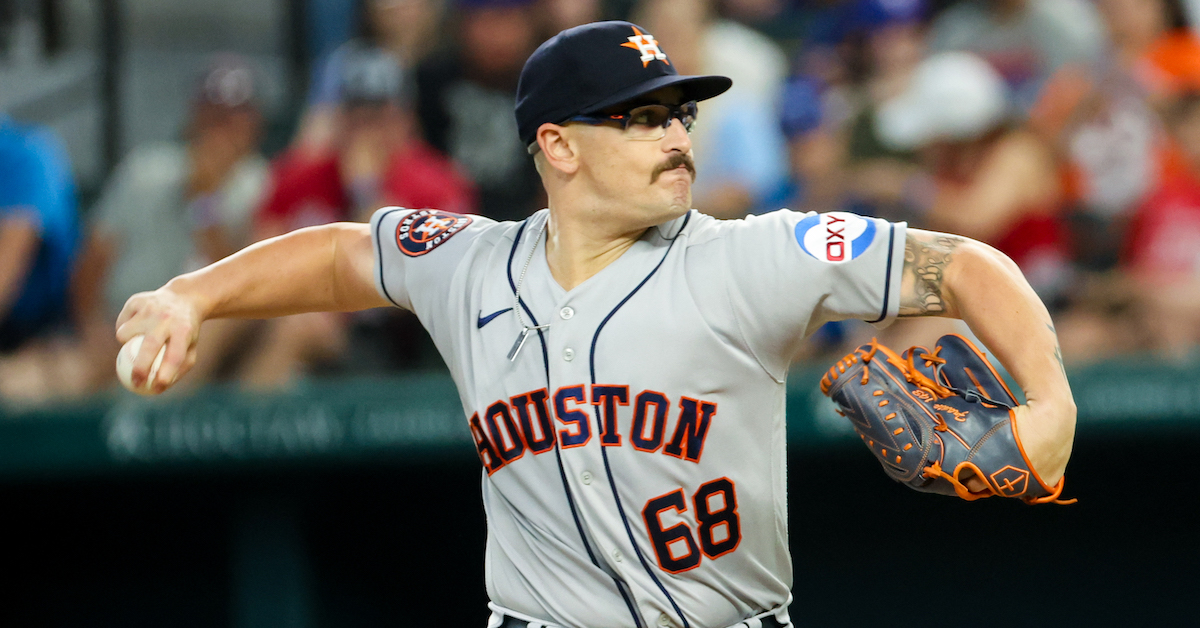For One Night at Least, Justin Verlander Stops the Astros’ September Slide

If Houston has a problem, that notion was put on hold for at least one night. Having lost four straight three-game series, three to lousy teams, the Astros arrived in Seattle sporting just a half-game lead over the Mariners for the third AL Wild Card spot, 2.5 games behind the Rangers. Fortunately for the Astros — for whom quality starting pitching has suddenly been in short supply this month — Justin Verlander played the stopper, shutting out the Mariners on two hits over his first eight innings in a 5-1 win.
Facing a team that owns the majors’ second-highest wOBA against four-seamers (.377), the 40-year-old Verlander dialed down his fastball usage in favor of his curve, and retired the Mariners in order in seven of his innings. He struck out the side in the second and fourth innings, and got into trouble only in the third, when Dominic Canzone and Josh Rojas hit back-to-back singles and J.P. Crawford followed with a walk. Verlander escaped that jam by inducing Julio Rodríguez to ground into a double play.
By that point, the Astros led 4-0, having banged out three second-inning runs against Luis Castillo via a trio of hard-hit balls from Mauricio Dubón, Martín Maldonado, and Jose Altuve, with Yordan Alvarez adding a fourth-inning homer. From the double-play ball through the end of the eighth, Verlander retired 16 straight Mariners. Given the intact shutout and a pitch count of just 91, manager Dusty Baker sent him out to start the ninth, but Rojas’ double into the right field corner ended Verlander’s night, and Bryan Abreu closed things out, though Rojas came around to score. Verlander struck out eight, benefited from a pair of diving stops by first baseman José Abreu, and allowed just six hard-hit balls out of 18 in play, none of them barrels. Read the rest of this entry »







